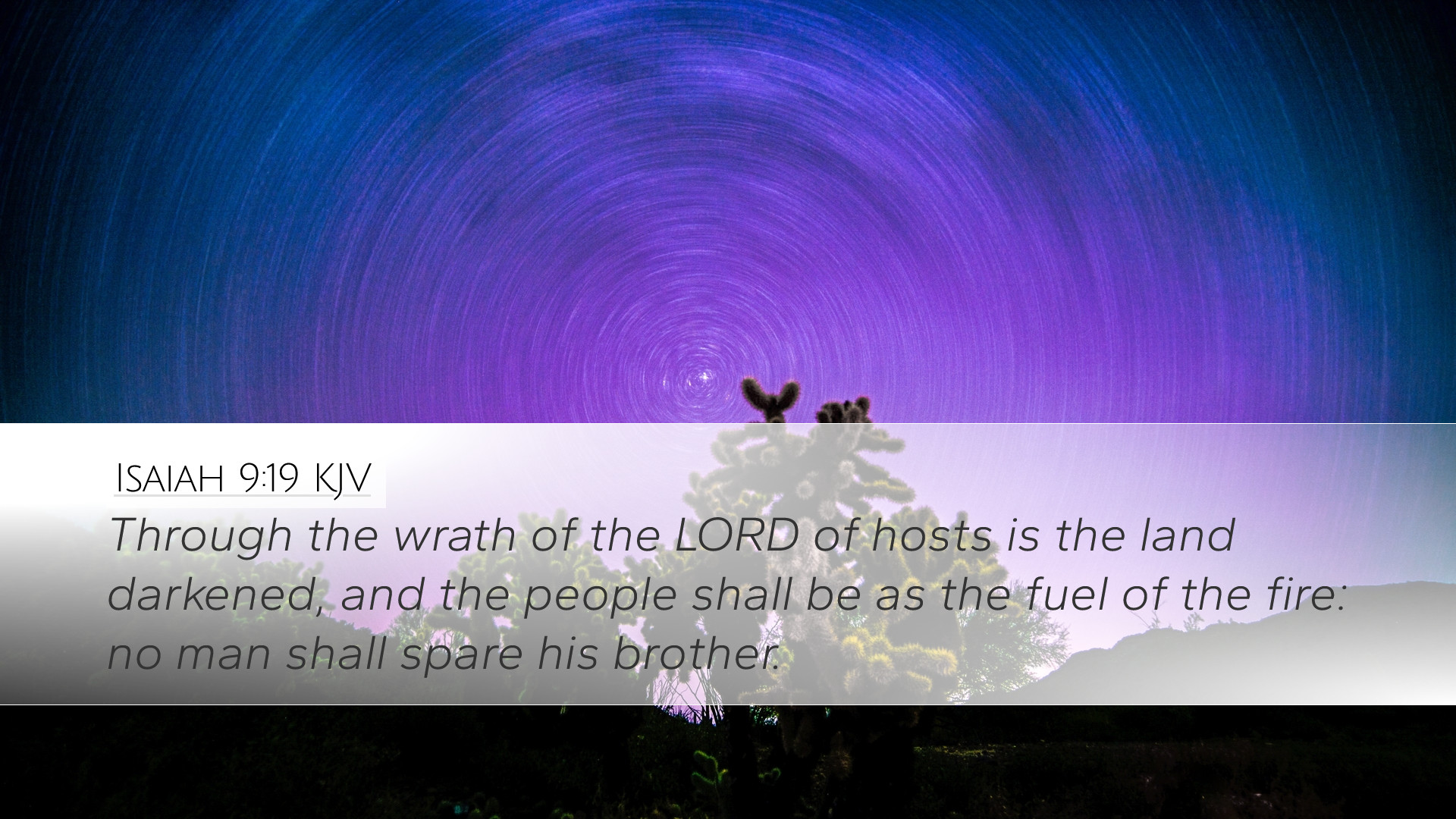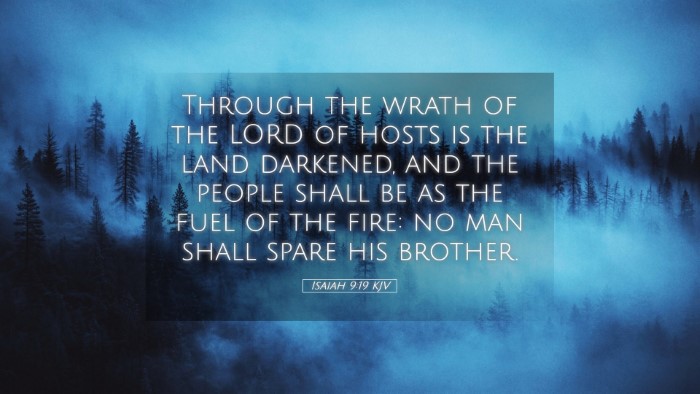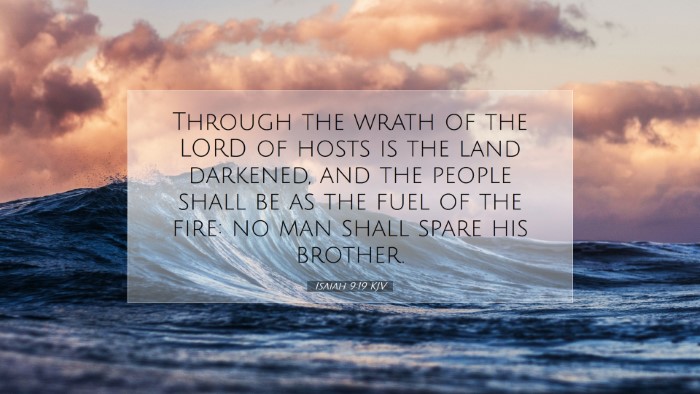Isaiah 9:19 (KJV): "Through the wrath of the LORD of hosts is the land darkened, and the people shall be as the fuel of the fire: no man shall spare his brother."
This verse presents a dire warning from the prophet Isaiah, encapsulating the themes of divine judgment and social strife. The context is critical, as it reflects not only the immediate consequences of Israel's disobedience but also the broader implications for God’s people and their relationship with Him.
Contextual Analysis
The preceding verses highlight the pervasive nature of sin in Israel, leading to extensive social decay. Isaiah serves as a mouthpiece for God, conveying the message of impending judgment due to persistent rebellion. The imagery of darkness suggests not merely a lack of physical light but a moral and spiritual obscurity resulting from turning away from God's commandments.
The mention of "the wrath of the LORD of hosts" indicates the severity of God’s anger and the reality that divine judgment is both inevitable and deserved. This sets the stage for understanding the societal repercussions, where anguish begets conflict among the people, leading them to act against one another.
Theological Implications
- Divine Justice: The concept of God’s wrath emphasizes the holiness of God and the nature of divine justice. As Matthew Henry notes, the judgment is not arbitrary; it is a response to the sinful state of the people, affirming that God is not indifferent to human behavior.
- Human Responsibility: The passage highlights human agency in the processes of sin and conflict. Albert Barnes comments that the people's failure to spare each other depicts a complete breakdown of societal norms, resulting in violence and self-destruction.
- Consequences of Sin: Adam Clarke writes about the repercussions of sin not only affecting the individual but cascading through society. The metaphor of the land being darkened serves as a reminder of how collective disobedience results in national calamity.
Interpretative Reflections
The darkness mentioned in the text can symbolize spiritual blindness, a state where the people are unable to perceive or acknowledge their sins. Matthew Henry elaborates on this darkness, indicating that it is a consequence of turning away from God’s light, demonstrating a rejection of His guidance.
Moreover, the imagery of people acting like “fuel of the fire” suggests a consuming nature of conflict and strife, where rather than unity, the people contribute to their own destruction. This reflects the profound reality that, in strife, relationships diminish, and communities fracture.
Exhortations for Believers
For contemporary audiences, particularly pastors and theologians, Isaiah 9:19 serves as a reminder to call the church back to repentance. The professional should consider social conditions and moral decline within their communities, urging collective contemplation of divine justice and mercy.
Leaders are encouraged to discern the modern manifestations of this darkness and seek pastoral responses that promote healing and reconciliation. The admonition to spare one another is particularly poignant in an age where divisions run deep, urging followers of Christ to embody unity and love amidst turmoil.
Conclusion
Isaiah 9:19 is a sobering reminder of the seriousness of sin and the extent of God's wrath against injustice. The insights from public domain commentators provide a rich tapestry of understanding that emphasizes the profound need for repentance and societal renewal. As believers reflect on this verse, they are called to uphold the light of God in a world threatened by darkness, advocating for peace, unity, and holiness.


